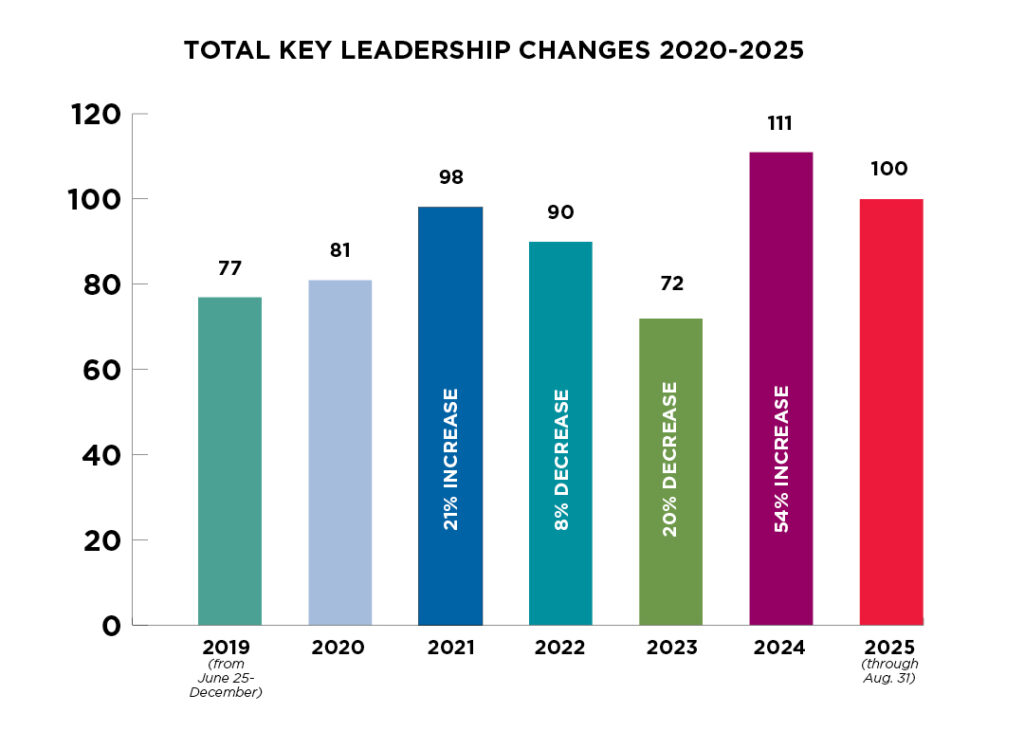On Leadership: Workplace mental health key to economic recovery

SUZANNA de BACA May 18, 2021 | 8:04 pm
4 min read time
928 wordsBusiness Record Insider, On Leadership, Opinion
The reality of mental health in the workplace hit home for Business Publications Corporation (BPC) last year as our colleagues, like so many, experienced increased stress due to uncertainty and changes brought on by the pandemic. We have long talked openly about mental health at work through dsm magazine’s Lifting the Veil publication and event series, but now it was about us. As 2020 unfolded, the executive leaders and I navigated how to best support our team while also trying to figure how to cope with the new circumstances ourselves. We were not alone.
“In 2020, workers were more stressed than ever,” says Paul Gionfriddo, president and CEO of Mental Health America, whose recently released “Work Health Survey” measured the perceptions of employees across varied industries over the past year. The survey reported that compared with prior years, employees were more worried about their physical and mental health, more anxious about their financial well-being, and more concerned that their employers were unsympathetic to the stresses they felt.
The level of burnout reported by survey respondents was alarming, but equally concerning was that more than half were actively looking for new employment. When employees do not feel supported, productivity and retention suffer.
While the pandemic is ebbing and workplaces are opening up, increased mental health issues persist. Business leaders have a direct stake and a significant role to play in supporting the mental health of our workforces. As Gionfriddo states, “Workplace mental health is key to a lasting economic recovery.”
To mark Mental Health Awareness month, I asked local leaders why supporting mental health in the workplace is more critical than ever. Here are their responses:
Andrew Allen, president and CEO, ’95 alumnus, YSS: Adversity creates opportunity and builds resilience. Employers who lean into the uncertainty created by the pandemic and address the mental wellness of their employees head-on will be rewarded by a committed workforce. One in two of us will have a mental illness over a lifetime, and depression is the No. 1 disability. Now is the time to bring light to darkness.
Jami Haberl, executive director, Iowa Healthiest State: Our world is not the same as it was in early 2020. Employees have been in a heightened state of anxiety, working from unconventional spaces and having to find new ways to integrate work and personal life for over a year. The impact is significant and, if not addressed, will affect employers’ ability to retain and recruit quality candidates.
Suzanne Mineck, president, Mid-Iowa Health Foundation: Currently, a large majority of children and adults in our community are facing unprecedented layers of stress, uncertainty and relentless barriers to accessing critical support resources. If we are to ensure and foster an innovative, productive, collaborative workforce, we must come together to reduce stigma and create more pathways for accessing necessary mental health supports.
Sasha Khosravi, D.O., chief medical officer, Clive Behavioral Health: Lack of mental health services is a well-established reality in Iowa. The pandemic exacerbated pressure on a burdened system. We have seen increased suicidality and substance use. We spend about 30% of our lives at work. So employers are a key part of the overall system to help Iowans who struggle with mental illness – encouraging them to seek help.
Katie Wengert, chief marketing and external relations officer for Broadlawns Medical Center: Given the volume of stress and uncertainty that everyone has endured over the past year, it is critically important for employers to be attuned to the health and well-being of their co-workers. There is truth to the expression that the mind and body go hand in hand. One cannot achieve overall health and wellness without attending to both their physical and mental health.
The success of our organizations — and our economy — depends on a healthy and productive workforce. It’s up to all of us to create workplaces that allow our teams to thrive. Only then can we all collectively thrive.
Tips for championing mental health in your workplace:
- Talk about it from the top down. “Leadership must walk the walk and talk the talk,” says Haberl. “If we are going to build strong workplaces … managers and supervisors have to recognize the role they play in supporting the overall well-being of their team.”
- Reduce stigma. Says Dr. Khosravi, “Reduce the stigma of mental illness by having open conversations with staff about the courage and acceptability of seeking help.” Allen advises, “Seek out internal champions, preferably leadership, to share their mental health journey to address stigma and then start a dialogue/open forum for employees to share what’s working and what’s not.”
- Take it seriously. Guide people leaders to take employee feedback seriously and provide coaching or training on listening skills and how to express or demonstrate compassion or empathy in a professional setting.
- Create support. If your organization does not have defined programs or support, create them. Build supports for in-person, hybrid and fully remote workforces. Mineck encourages leaders to “eliminate financial barriers to accessing mental health services.”
- Be aware of differences. Recognize that women and marginalized communities may be experiencing disproportionately high rates of stress or mental health issues in the wake of the pandemic. Be open to supporting these individuals in different ways that meet their particular needs.
- Be a role model by prioritizing your own self care. Says Wengert: “Go for a walk. Read a book. Listen to music. Disconnect from electronics. Stretch. Play with a pet. Hug a loved one. Eat healthy. Get plenty of rest. Stay hydrated. Meditate. Take deep breaths. Laugh.”










